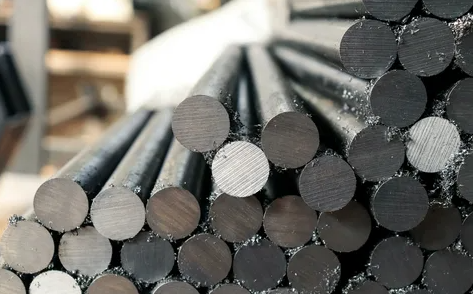The surplus global steel capacity is estimated at hundreds of millions of tons and increases competition in the global market every year. Despite their gradual closure, for example in China and in other countries of the world, the situation does not change dramatically.
On the other hand, highly efficient Chinese enterprises remain to work and influence the global environment. Therefore, despite the relatively attractive world prices, the Ukrainian metal producer is constantly on the edge of the abyss. “At any time we can return to the situation in the fall of 2008. Or to the situation in 2015, when steel prices were the lowest in the last 15 years,” says Kalenkov, president of Ukrmetalurgprom. After all, Ukrainian metallurgists are too dependent on export markets, shipping more than 80% of their products to the world. On the other hand, the Ukrainian MMC provides about 28% of the Ukrainian foreign exchange earnings.
In addition, the trend of protectionism is growing in the world - the number of anti-dumping and special investigations in relation to steel products is increasing. States are trying to protect their domestic markets and preserve their own industries. The US trade war with China has indirectly affected all countries. The European Union has adopted preliminary sanctions against imported steel and plans to apply tariff quotas for each of the supplying countries. Now this process is at its final stage and by the end of this year, EU representatives should formulate their requirements for importers.
“For some groups of metal products, these quotas have already been selected by 85%, when the quotas are fully selected, a 25% duty will begin to operate,” said Mr. Kalenkov. He also adds that Turkey has also introduced protective measures, and the Gulf countries, despite the European example, are also considering using protective measures. These markets consume a significant amount of Ukrainian exports of metal products. “We expect that the European side will heed the Ukrainian arguments and this will reduce our risks,” Mr. Kalenkov hopes. Internal risks are added to external ones, mainly related to logistics. This is a crisis in the Sea of Azov, which may lead to an increased load on the railway and the Black Sea ports. The Kamysh-Zarya-Volnovakha isthmus can become a problematic place here and the deep water of the Ukrainian ports in general is limited. The expert also drew attention to the ineffective state management of monopolies. “The mining and metallurgical sector suffers greater losses from the ineffective activities of Ukrzaliznytsia than from the growth of tariffs for freight transportation,” says Alexander Kalenkov. “Tariffs for the transportation of goods are growing, but the situation with the deficit of locomotive traction is not improving.” According to the estimates of the association
Subscribe to news 
Metallurgy news
- Today
15:00 15:00 14:00 Thailand expands AD duties on steel pipes from Vietnam 14:00 Tata Steel invests $1.22 billion in Green steel technology at Jamshedpur plant 14:00 13:00 Indonesia preliminary finds dumping on Chinese HRC from WISCO, proposes a duty of 17.55% 13:00 Queensland's coal exports rose 4.1 percent in December 2025 11:00 IMF maintains global growth forecast at 3.3% despite trade tensions and AI surge
Publications
16.01 Sea fishing in Hikkaduwa, Sri Lanka - fishing in the sea, ocean and fresh waters of the west coast 13.01 Organizing and holding corporate events: why a professional event agency is a real life hack 09.01 Mistakes when building with ceramic blocks 07.01 Vinyl players in Ukraine: popular brands and their features 06.01 Souvenir products with the logo from the El Dorado company






